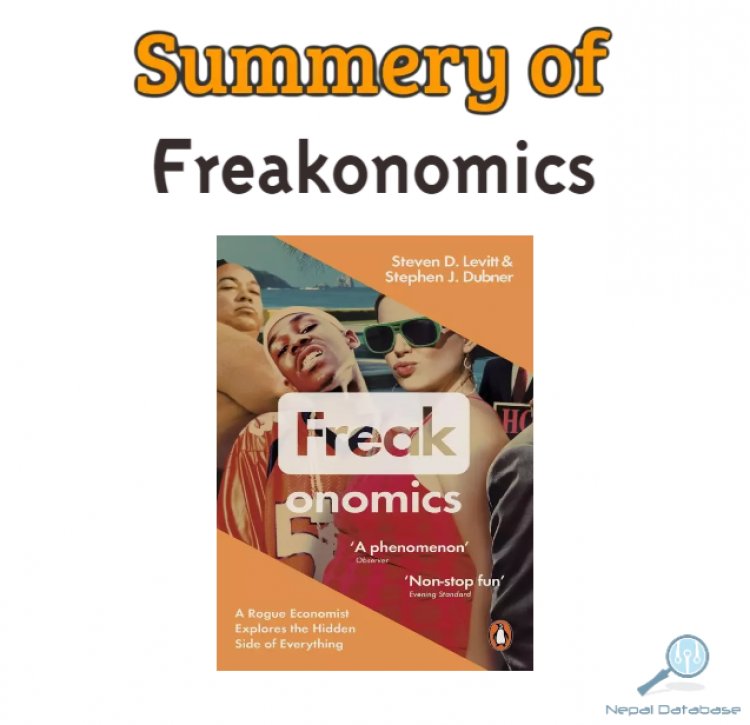Summary of Freakonomics: Important Themes and Insights by Steven D. Levitt and Stephen J. Dubner
Get a complete summary of "Freakonomics" by Steven D. Levitt and Stephen J. Dubner, covering important themes like incentives, unintended consequences, and the impact of social networks.

"Freakonomics: A Rogue Economist Explores the Hidden Side of Everything" is a nonfiction book written by economist Steven D. Levitt and journalist Stephen J. Dubner. The book uses economic theories and principles to analyze and explain various real-world phenomena that may appear unrelated.
The book is divided into six chapters, each covering a different topic:
-
What Do Schoolteachers and Sumo Wrestlers Have in Common?
The first chapter of the book uses statistical analysis to uncover the incentives that drive teachers to cheat on standardized tests and sumo wrestlers to throw matches. The authors argue that these seemingly disparate cases share a common thread: when incentives are aligned in a certain way, individuals will sometimes break the rules in order to achieve their goals.
-
How is the Ku Klux Klan Like a Group of Real-Estate Agents?
The second chapter compares the Ku Klux Klan to a group of real-estate agents, both of whom have a common interest in maintaining the status quo. The authors argue that the Klan was not primarily motivated by racism, but by a desire to maintain its power and influence. Similarly, real-estate agents may have an incentive to steer clients towards certain neighborhoods in order to protect their commission.
-
Why Do Drug Dealers Still Live with Their Moms?
The third chapter explores the economics of drug dealing. The authors argue that the vast majority of drug dealers make very little money and live with their parents because the market is highly competitive and saturated. The true profit margins are earned by those at the top of the drug-trafficking pyramid.
-
Where Have All the Criminals Gone?
The fourth chapter examines the sharp decline in crime rates in the 1990s, and argues that it can be attributed to the legalization of abortion in the 1970s. The authors argue that the children who would have been born to unwanted mothers and raised in adverse circumstances are the most likely to become criminals. Thus, the legalization of abortion resulted in a decrease in the number of children born into circumstances that would have predisposed them to a life of crime.
-
What Makes a Perfect Parent?
The fifth chapter explores the factors that contribute to successful parenting. The authors argue that traditional parenting strategies, such as reading to children and enrolling them in expensive schools, may not be as important as previously believed. Instead, the most successful parents are those who have a strong sense of commitment to their children and provide a stable, nurturing environment.
-
Perfect Parenting, Part II; or: Would a Roshanda by Any Other Name Smell as Sweet?
The final chapter delves deeper into the effects of a child's name on his or her success in life. The authors argue that a child's name may be a significant factor in his or her future success, but not necessarily because of any inherent qualities of the name itself. Rather, a child's name can signal certain characteristics about his or her parents, which may in turn affect his or her prospects in life.
Overall, "Freakonomics" challenges readers to think critically about the world around them and to consider the hidden incentives that drive human behavior. The book has been praised for its engaging writing style and novel approach to economic analysis.
What's Your Reaction?





































































































